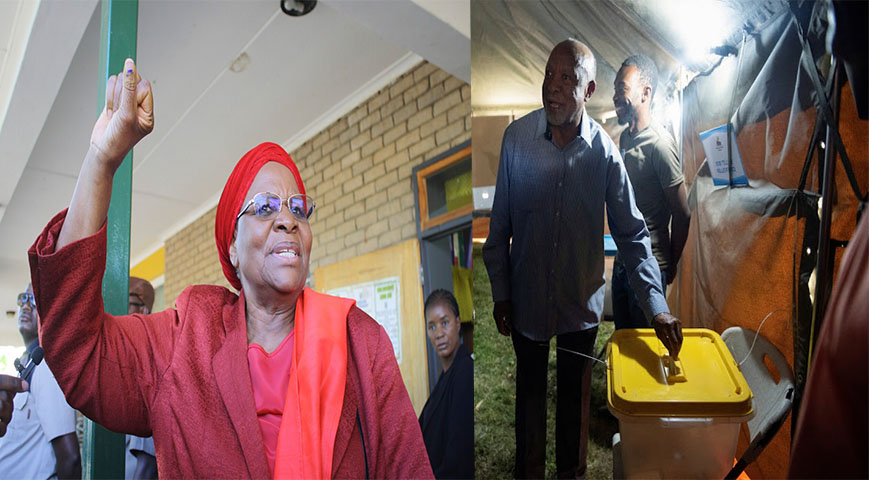Voters in Namibia’s capital, Windhoek, turned out in large numbers early Wednesday to participate in presidential and parliamentary elections.
These elections may pose a tough challenge for the ruling SWAPO party, which has been in power since 1990 when it led the nation to independence from apartheid South Africa.

Vice President Netumbo Nandi-Ndaitwah is SWAPO's presidential candidate and could make history as Namibia’s first female leader. However, growing discontent among the youth over unemployment, inequality, and corruption allegations could threaten SWAPO’s hold on power. Despite this, the party still enjoys loyalty from older and rural voters, which may secure its chances.
Polling stations opened at 7:00 AM local time, with some voters waiting overnight to cast their ballots. “I arrived at 6:30 AM, but the queue was already long. This wasn’t the case in 2019,” said Tuna Alweendo, a teacher. She noted that more young people are motivated to vote, seeking change and political involvement.
Did you read this?
SWAPO’s popularity has declined, dropping to 56% in the 2019 presidential election from 87% in 2014. A run-off will be required if no candidate secures over 50% of votes. Among the 14 opposition candidates, Panduleni Itula, a dentist-turned-politician, is the leading contender.

Interim President Nangolo Mbumba has been leading the nation since February after the death of former President Hage Geingob but is not running.
Nandi-Ndaitwah highlighted unemployment as a pressing issue, promising to prioritize job creation for youth. While Namibia has experienced growth through investments in oil, gas, and green hydrogen, according to the World Bank, it ranks second globally in income inequality.
Approximately 1.4 million registered voters are expected to decide the country's future, with results anticipated in a few days.









